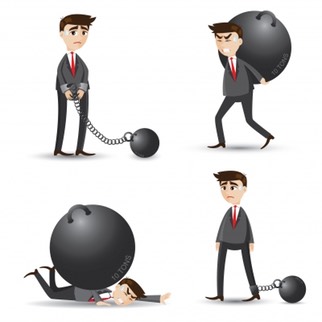The truth is you may not always be able to eliminate stress. Stress, potential threats, and anxiety are inevitable. If you can’t remove it, then at best, you can reduce the pressure and learn to live with what you can not eliminate. You are capable of minimizing the magnitude of the stressful reaction upon the body. You must evaluate your life as it is.
While drugs, alcohol, cigarettes, and food may offer temporary relief, they can quickly increase the problem. A change in your daily routine or environment can reduce your stress and improve your coping strategies.
The following are examples of useful coping strategies.
1. Relax: It’s essential to unwind. Each person has his or her way of relaxing. Some techniques include deep breathing, yoga, meditation, and massage therapy. If you can’t do these things, take a few minutes to sit, listen to soothing music.
2. Make time for yourself: It’s crucial to care for yourself. Think of this as an order from your doctor, so you don’t feel guilty. No matter how busy you are, you can try to set aside at least 15 minutes each day in your schedule to do something for yourself, like going for a walk or calling a friend.
3. Sleep: Sleeping is a great way to help both your body and mind. Your stress could get worse if you don’t get enough sleep. With enough sleep, you can tackle your problems better and lower your risk for illness. Try to get seven to nine hours of sleep every night.
4. Eat right: Try to fuel up with fruits, vegetables, and proteins. Don’t be fooled by the jolt you get from caffeine or sugar. Your energy will dwindle.
5. Set limits: When it comes to things like work and family, figure out what you can do. There are only so many hours in the day. Establish limits and priorities for yourself and others. Don’t be afraid to say NO to requests for your time and energy.
6. Plan your time: Think ahead about how you’re going to spend your time. Write a to-do list. Figure out what’s most important for you.
7. Don’t deal with stress in unhealthy ways: This includes drinking too much alcohol, using drugs, smoking, or overeating.
8. Exercise: Research shows that physical activity is the best tension reliever. It is an essential remedy for stress. Nothing eases pressures more than exercise, which improves your health and reduces stress and also relaxes tense muscles that help you to sleep.
© Wordscapes® David Turner). All Rights Reserved.




